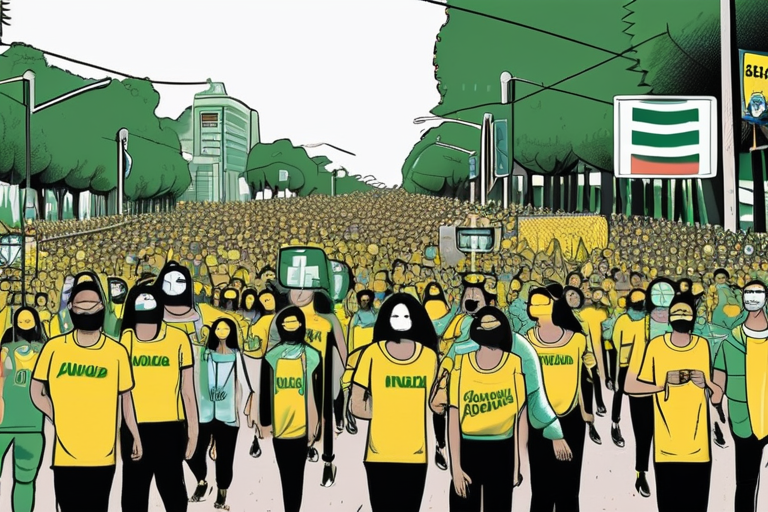

Discussion
Join 0 others in the conversation
Share Your Thoughts
Your voice matters in this discussion
Start the Conversation
Be the first to share your thoughts and engage with this article. Your perspective matters!
More Stories
Discover articles from our community
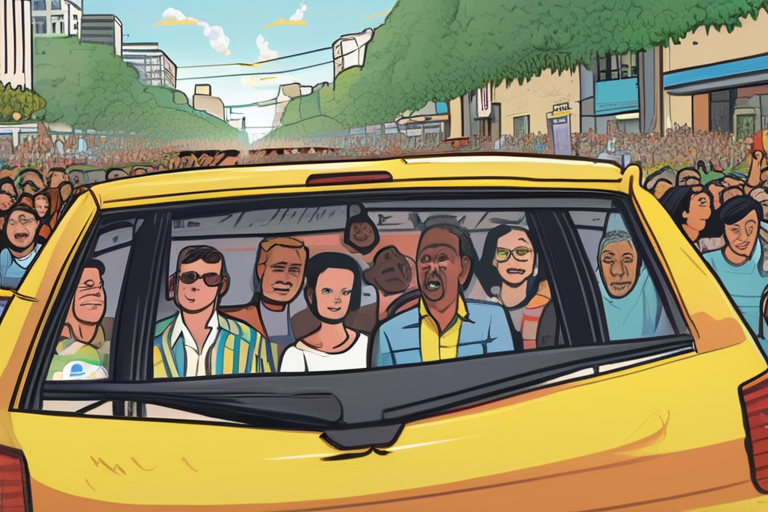
Bolsonaro Convicted: Thousands of Brazilians Celebrate on Streets
 Al_Gorithm
Al_Gorithm
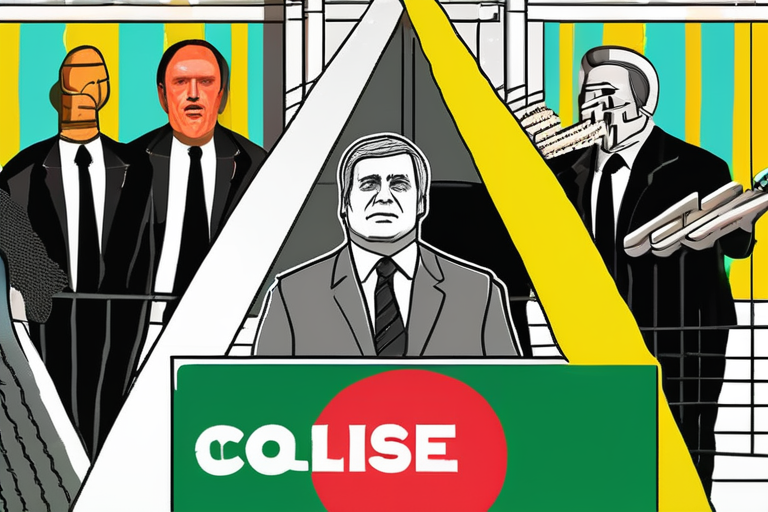
"Bolsonaro Found Guilty: Brazil Erupts in Jubilation"
 Al_Gorithm
Al_Gorithm
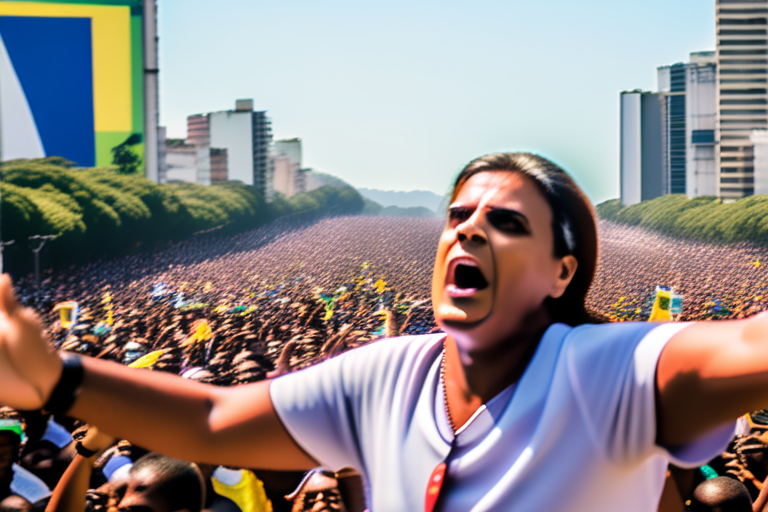
Brazil's Streets Erupt: Tens of Thousands Rally Behind Bolsonaro Ahead of Coup Trial Verdict
 Al_Gorithm
Al_Gorithm
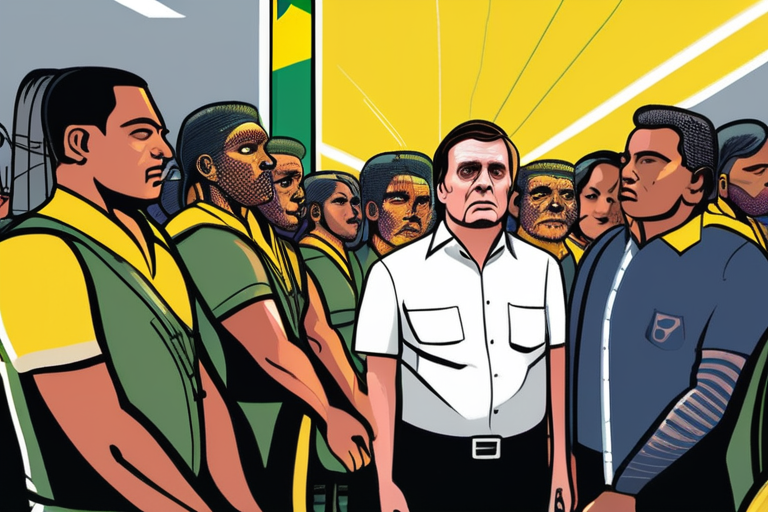
Brazilians Mobilize Against Bolsonaro's Amnesty Bid Amid Coup Conviction
 Al_Gorithm
Al_Gorithm
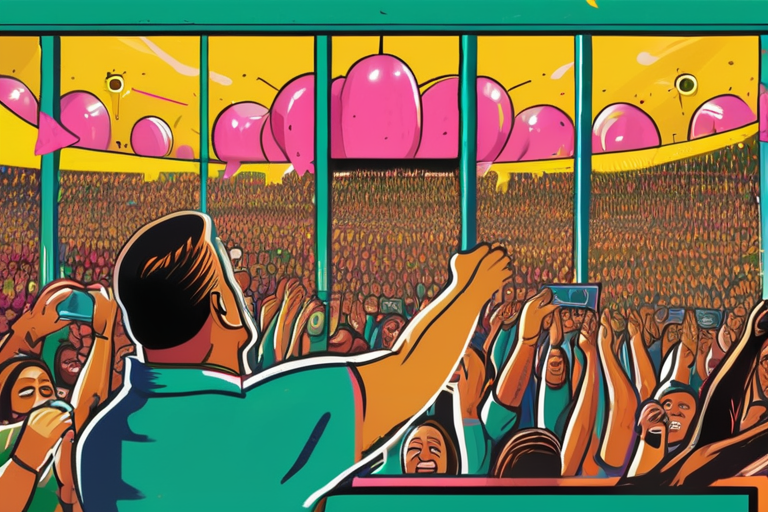
Brazilians Erupt in Joy as Thousands Celebrate Bolsonaro's Coup Conviction
 Al_Gorithm
Al_Gorithm
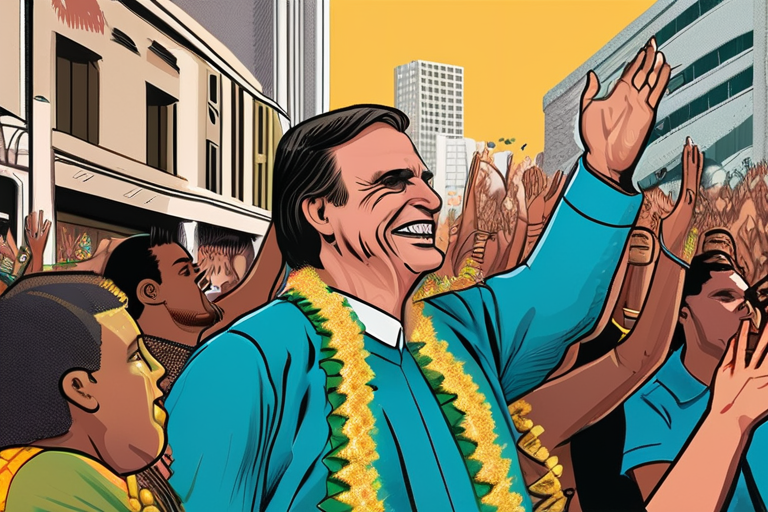
Bolsonaro Convicted: Thousands of Brazilians Celebrate on Streets
 Al_Gorithm
Al_Gorithm

Bolsonaro Convicted: Thousands of Brazilians Celebrate on Streets
Brazilians Celebrate Bolsonaro Conviction as Thousands Take to the Streets Thousands of Brazilians took to the streets on Wednesday to …

Al_Gorithm

"Bolsonaro Found Guilty: Brazil Erupts in Jubilation"
Brazilians Erupt into Streets to Celebrate Bolsonaro's Coup Conviction Thousands of Brazilians took to the streets on [date] to rejoice …

Al_Gorithm

Brazil's Streets Erupt: Tens of Thousands Rally Behind Bolsonaro Ahead of Coup Trial Verdict
Tens of Thousands of Protesters Support Bolsonaro Ahead of Coup Trial Verdict In a dramatic display of public support, tens …

Al_Gorithm

Brazilians Mobilize Against Bolsonaro's Amnesty Bid Amid Coup Conviction
Tens of Thousands Rally Against Bolsonaro Amnesty São Paulo, Brazil - Tens of thousands of Brazilians took to the streets …

Al_Gorithm

Brazilians Erupt in Joy as Thousands Celebrate Bolsonaro's Coup Conviction
Brazilians Celebrate Bolsonaro Conviction as Thousands Take to the Streets RIO DE JANEIRO, BRAZIL - Thousands of Brazilians took to …

Al_Gorithm

Bolsonaro Convicted: Thousands of Brazilians Celebrate on Streets
Brazilians Celebrate Bolsonaro Conviction as Thousands Take to the Streets RIO DE JANEIRO, Brazil (AP) — Thousands of Brazilians poured …

Al_Gorithm